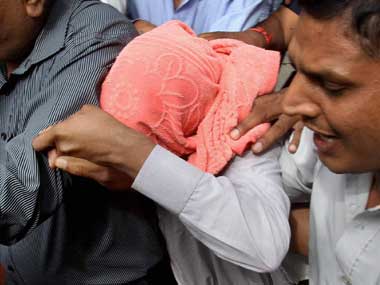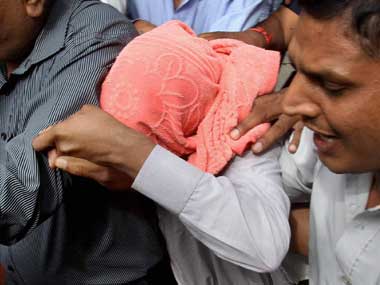It is hard to gather anything good about special homes- institutes meant for minors guilty of serious offences. Social workers who have visited these homes describe the condition inside as “depressing,” “abysmal” and “useless”. As per the Juvenile Justice Act (JJA) - the legislation under which juvenile offenders are tried- special homes should rehabilitate offenders and facilitate their reintegration with the mainstream once they are released. But poor infrastructure, the callous attitude of officials and lack of oversight mar these institutes. It leaves a big question mark on the chances of reformation of inmates, such as the 16 December Delhi gangrape convict. He will spend three years in a special home in Delhi, ruled the juvenile justice board on Saturday, concluding the most talked about trial involving a juvenile. “First, the state fails the child by not giving him proper living conditions. He has to leave his home and do some menial jobs. And in case he commits a crime, he is sent to an institute with no hope of him getting reformed. This is where the state fails him for the second time,” says Bharti Ali, co- director, Haq centre for child rights, Delhi based NGO working for the rights of minors. Ali has closely monitored the functioning of special homes. [caption id=“attachment_1076709” align=“alignleft” width=“380”]  The Juvenile offender in court on Saturday: PTI[/caption] While those found to be under the age of 18 at the time of commitment of a petty offence are kept in observation homes, juveniles guilty of serious offences such as rape and murder are sent to special homes, according to the JJA. The Act has laid down various requirements for a special home: - It should be located nearest to the place of residence of the juvenile’s parent or guardian. - It shall be child-friendly and in no way shall they look like a jail or lock-up. - Separate special homes for girls above the age of 10 years and boys in the age groups of 11 to 15 and 16 to 18 years. - A daily routine for inmates developed in consultation with the Children’s Committees - A well conceived programme of pre-release planning and follow up of cases discharged from special homes. But the reality of the 30 special homes in India is a far cry from what is laid out in the act. “No routine is followed in these homes. “Inmates watch TV almost the whole day. Educational classes are imparted. Tailoring and cookery sessions are conducted. But attending these classes is at the discretion of the offender. There is no individual care plan or assessment,” says Ali about the condition of the special home in Delhi. “It is worse in other states,” she adds. A legal aid counsel who regularly visits the special home in Delhi, says, “Rooms are very congested. There is always a peculiar smell in the compound. It’s a very depressing feeling.” More than 6000 juveniles apprehended in 2011 were illiterate, as per the NCRB data. Around 12,000 had studied up to primary level. Fifty six percent hailed from poor families whose annual income did not exceed Rs 25,000. Yet, their socio- economic background is never considered during their stint in reformatory homes. “These juveniles are largely treated as hardened criminals. There is often little or no tolerance, understanding or willingness to treat them as what they are- young adolescents, most of who seem to be on the margins of society,” note Arlene Manoharan and Swagata Raha of Centre for Child and the Law, National Law School of India University (NLSIU), Bangalore. Juveniles creating a ruckus in institutes, giving a tough time to staff and escaping the institute are regular phenomenons in such homes. In Early August, juveniles at the special home, where the 16 December gangrape convict will be lodged, pelted stones and set blankets on fire to protest the poor amenities in the home. They were shifted to an observation home in North West Delhi. On Friday, five of them managed to flee. Twenty seven boys escaped observation home in Delhi in 2010. Thirty ran away in 2009. Manoharan and Raha say that such incidents are mostly caused by a severe lack of infrastructure and proper training of staff. What has happened as a result, he says, is that the job at a special home is considered a punishment posting. “On the one hand they do not get the training and support necessary to deal with extremely challenging situations in the observation home and special home, and on the other – get blamed when children escape or commit suicide.” Others believe that in the absence of recreational facilities, juveniles are bound to get destructive rather than creative. Even those who never thought of an escape from institute, start getting these ideas once they are inside. Asha Mukundan, assistant professor with the Centre for Criminology and Justice, Tata Institute of Social Sciences, Mumbai, was part of a team which, in 2008, studied the justice delivery system for juveniles in Maharashtra. In 2011, she conducted a similar study for the national capital. She says, “You have to deal with the mindset of juvenile offenders. But our special homes are not equipped for this. They claim that they provide vocational training and educational classes. But the fact is that they don’t achieve any purpose other than keeping the juveniles engaged for sometime. They are adolescent boys with lots of energy. When it does not get channelised towards any positive activity, they become destructive. They do all kinds of things to seek attention.” It has been shown that with individual care and attention, juvenile delinquents can get back to the mainstream. And it can be done in three years- the maximum time period for which juvenile offenders can stay in special home, as per the JJA. For the last two years, ECHO, a Bangalore based NGO, along with the state government, has been a special home. According to Father Antony Sebastian, executive director of ECHO, every effort is made to provide a composed atmosphere to 23 juveniles in the home. “Government managed homes take a custodial approach. We follow a rights based approach,” says Sebastian. Light music, yoga, creative activities and moral classes are part of daily routine in the home, he says. Since 2002, the organisation has trained more than 135 juveniles in conflict with law, to become traffic police assistants. Arlene Manoharan of NLSIU recounts the case of a 15 year old boy from Karnataka who was convicted for murdering his father. He was diagnosed with post traumatic stress disorder and sent to a special home. He followed a daily routine developed by Manoharan’s team who worked closely with the boy’s family, mental health experts and officers of the special home. He was released after four months and is now living a normal life. But such examples are rarity rather than norm. Reformation facilities in the country are in dire need of reforms themselves. As the system has failed to produce many success stories, the cries to amend the JJA and treat juveniles as adults, have only grown louder.
Juveniles creating a ruckus in institutes, giving a tough time to staff and escaping the institute are regular phenomenons in such homes, which are over crowded and have no specially trained staff.
Advertisement
End of Article


)

)
)
)
)
)
)
)
)



